#jamaican american literature
Text
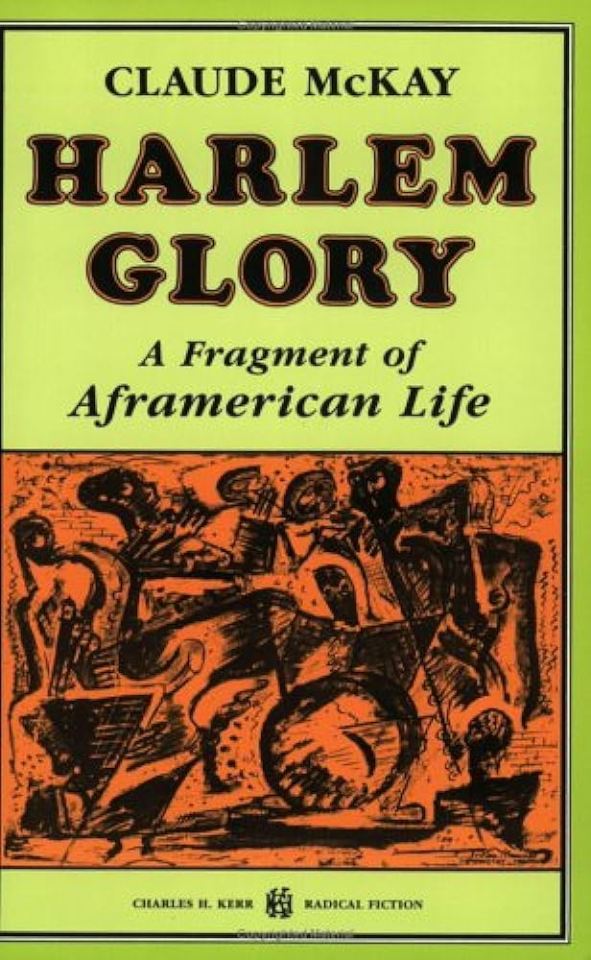
#novella#novellas#harlem glory#harlem glory a fragment of aframerican life#claude mckay#black literature#jamaican american literature#jamaican literature#african american literature#american literature#20th century literature#english language literature#have you read this short fiction?#book polls#completed polls
4 notes
·
View notes
Text
Words of the Day
"Me likkle but me talawa" -- just want to put this here, 'cause I heard someone say it this week.
untoward:
Improper; unseemly.
Unfavorable or adverse.
Froward; perverse.
carceral:
Belonging to a prison.
Of or pertaining to prison.
A pergola is most commonly an outdoor garden feature forming a shaded walkway, passageway, or sitting area of vertical posts or pillars that usually support cross-beams and a sturdy open lattice, often upon which woody vines are trained.
~~~
Though similar, a pergola is different from a gazebo.
#me likkle but mi talawa#Words of the Day#words#dictionary#literature#patois#jamaican#jamaican patois#language#definition#untoward#carceral#pergola#american fiction#Me likkle but me talawa
2 notes
·
View notes
Text
Jonathan Escoffery || If I Survive You
Booker Prize Shortlist 2023
Mixed feelings about If I Survive You, mostly caused by the fact that it hinges between being a novel and a collection of short stories, which I am not a great fan of. Trelawny is the person who unites all the stories. To be honest: he is not exactly a likeable person. On the contrary, he is the type of main character you feel little sympathy for despite all the…
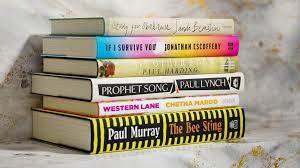
View On WordPress
#reading is fun#4th estate#American literature#Booker Prize#Booker Prize Shortlist 2023#Great Novel#Great reading#Harper Collins#If I Survive You#Jamaican writer#Jonathan Escoffery#literature
0 notes
Text
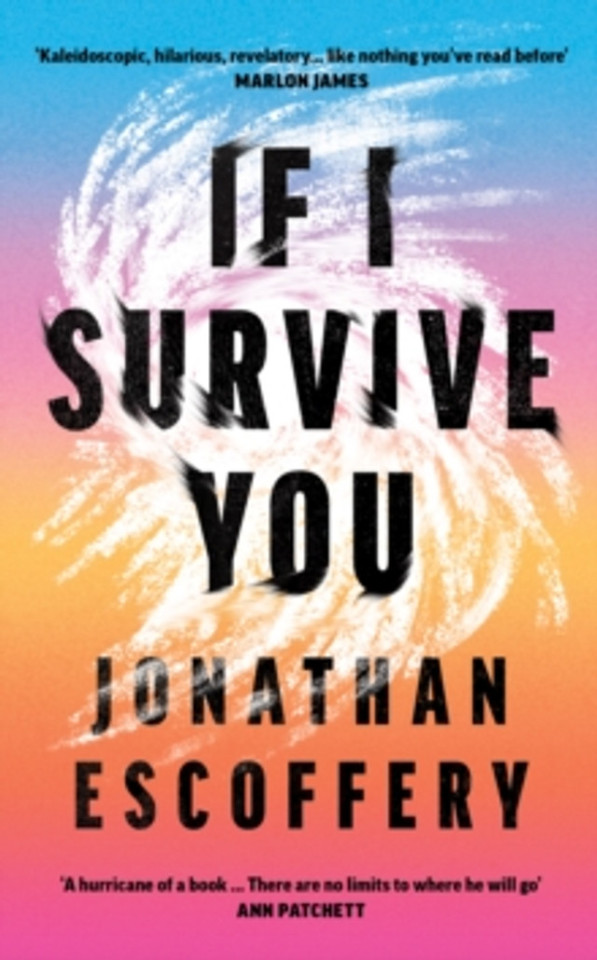
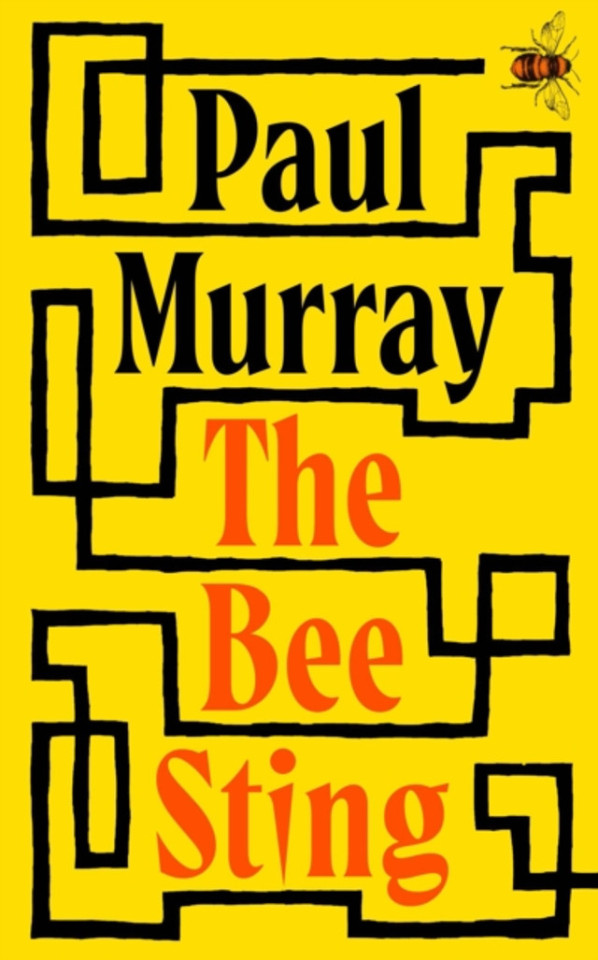



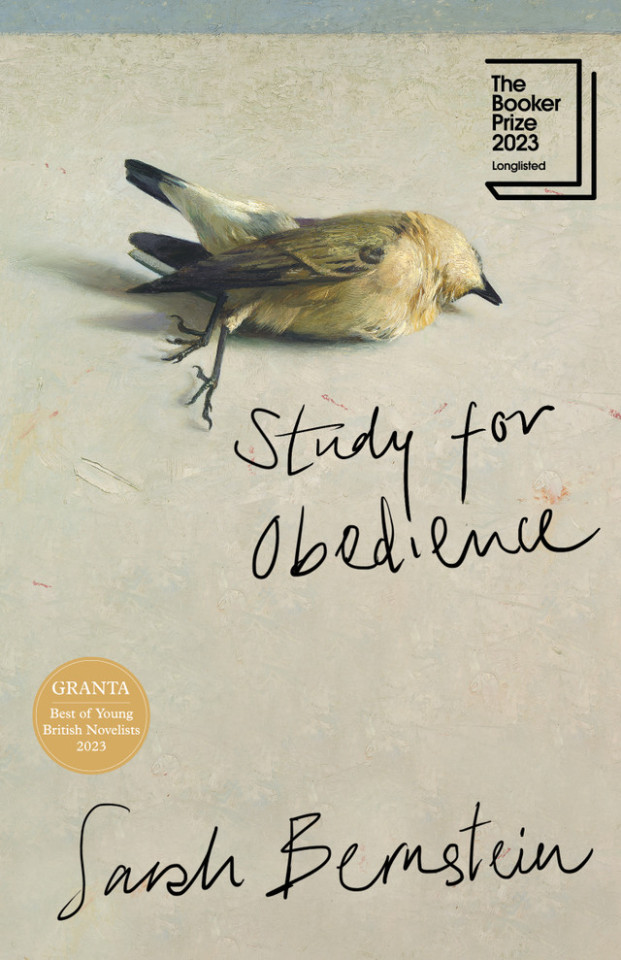
Yes, it’s that time again: next Sunday the winner of this year’s Booker prize will be announced. Everyone has their favourites and it’s easy to carp about novels the judges missed, but the truth is we don’t know which ones they consider – the list of 150-odd titles is never made public and probably any number of subterranean factors determines its makeup; a few years ago I heard of at least one big-name British author, an obvious contender, who refused to be considered. And awards – now brands in themselves – seek to establish their own identities: was Barbara Kingsolver’s Demon Copperhead crossed off the list after winning the Pulitzer and Women’s prizes for fiction?
One of the judges, Shakespeare scholar James Shapiro, recently said he isn’t comfortable with historical fiction, which perhaps had something to do with the absence from the longlist of two of the year’s most feted novels, Zadie Smith’s The Fraud and Tom Crewe’s The New Life. True, one historical novel has made the shortlist: This Other Eden (Hutchinson Heinemann), by Pulitzer-winning US author Paul Harding – but that’s no surprise: the chair of judges, Esi Edugyan, says how good she thinks it is on the cover of the book itself, published last February.
Drawing on the true story of the forced eviction of a mixed-race island community in New England before the first world war, it may have Edugyan’s vote but I think it’s a novel that’s hard to love. We follow various descendants of a freed slave as a well-meaning missionary, privately racist, attempts to spare one of them – a gifted young painter who happens to pass as white – by having him moved to a friend’s estate on shore.
At the core of what ensues is his doomed romance with his landlord’s Irish maid. But Harding relies on laboriously laid slabs of narration to generate dramatic irony as we see events from different points of view – the painter’s, the maid’s, then his family’s, confronted with her pregnancy as she visits the island in search of the painter’s past.
In his previous novel, Enon, Harding found a measure of comedy even in the plight of a father mourning the death of his teenage daughter in a road accident. Nothing to laugh about in This Other Eden, a mark of Harding’s sense of responsibility to his painful material. For sure, he wrings pathos from the injustice and horror from the climactic violence but the novel never justifies its own interest in the spectacle.
I have similar unease about Paul Lynch’s Prophet Song (Oneworld), set in a contemporary Ireland gradually riven by war between a totalitarian regime and insurgent rebels. It follows a Dublin mum of four after the arbitrary detention of her trade unionist husband. The focus is on her trials keeping the breakfast-to-bedtime show on the road amid a descent into hell, from abductions to air raids. That focus gives the novel its convincing frisson – as bombing intensifies, the protagonist’s father rings her up complaining about his neighbour’s ivy – but it also locates it firmly as thought experiment. It’s jarringly apolitical – there’s no obvious history to what’s going on – and ultimately there’s something almost obscenely decadent to its invitation to sympathise with sea-crossing refugees by recasting them as middle-class Europeans. When Eilish thinks it’s “as though some filmed transparency of a foreign war has been placed upon an image of the city”, the line catches exactly what Lynch is up to.
Still, its explosive set pieces have a visceral spell undimmed by rereading, and any sense of unease it fosters may count in its favour – whatever else it is, Prophet Song is a novel to argue about.
I preferred quieter books on the list. Kudos to the judges for spotlighting If I Survive You (Fourth Estate), a thrilling debut by US writer Jonathan Escoffery (a former student of Percival Everett, shortlisted last year for The Trees) that starts as an exploration of second-generation American identity by way of a Jamaican-descended literature graduate, Trelawny, whose morale – already battered by being second-best, at least in his father’s eyes, to his tree surgeon brother Delano – takes another hit by his graduating post-recession. He finds himself doing crazy things for money, not least being paid by a woman who puts out a classifieds ad looking for someone to hit her.
With much tenderness in the gulf between father and son, this would be a worthy winner. It’s funny, sad, always toying with assumptions about race. Don’t be misled by the opening sequence, which feels like an exercise in voice, as the second-person narration explores the contortions of internalised racism. In later sections Escoffery shines through as a first-rate scene-maker with a wicked knack for jeopardy: witness Delano’s catastrophically ill-conceived bid to retrieve an impounded cherry-picker so he can take on a job. In the title story, Trelawny winds up part of a rich white couple’s twisted sex game (and yes, this is a linked story collection, openly advertised as such on the dust jacket, a first for a prize now awarded to “longform fiction”).
Another debut that is a revelation is Western Lane (Picador) by Chetna Maroo, the only British writer here (hard not to note that she got her break from magazines in the US and Ireland). Families were clearly a hot topic for this year’s judges, but the simplicity of this book stands apart. It is narrated by 11-year-old Gopi, youngest of three daughters in an Indian family living in south London, whose father schools her in squash at a local leisure centre in the year after their mother’s death. The story evolves as she practises to compete in a tournament: the power of the novel lying in what goes unsaid between Gopi and Pa, between her and an older boy she hits with at the leisure centre, between the sisters, between her and the childless aunt and uncle in Edinburgh where she’s expected to move.
This is a beautiful tale of family – and sport. A moving yet non-maudlin novel about grief, it’s told in plain language electric with feeling, nicely catching the narrator’s incomplete understanding of her situation without making her a figure of irony. A real feat: if the metric is the ratio of number of words to emotion generated, Western Lane wins.
Paul Murray’s mighty The Bee Sting (Hamish Hamilton) is a book nearly big enough to contain the others on the shortlist, and it features many of their themes, from filial misunderstanding to civilizational collapse – or its looming shadow, seen in the ultimately catastrophic prepping of its beleaguered patriarch, a car salesman sunk by the recession, wed to the class-climbing daughter of a bare-knuckle boxer. A 650-page soap opera with a clockwork plot whose delicate mechanism you can’t hear tick: if it wins the Booker there will be a lot of delighted readers finding it under the Christmas tree.
It’s so obviously the best novel here – but will the judges talk themselves out of it? A sceptical 3,000-word review in the London Review of Books shows what might happen if you’re encouraged to think about it for too long; and remember, too, the Booker doesn’t reward the best novel of the year – not exactly – it’s more the book that survives a process that entails being read and discussed again and again over the better part of nine months.
It’s because of this that I wonder if Prophet Song will get the nod – or Sarah Bernstein’s Study for Obedience (Granta). A Canadian living in Scotland, listed this year as one of Granta’s best young British novelists, she is also winner of Canada’s prestigious Scotiabank Giller prize (twice won by Edugyan). Study for Obedience has nagged me since I read it in March. I didn’t like it then and I don’t love it now but in a list of novels about family it stands apart – an almost spectrally vague existential brainteaser soaked in 20th-century bloodshed. I can’t tell you what the novel is about, exactly, and that’s why I think it bears scrutiny.
The narrator is an unnamed woman who moves to an unspecified country to take up her creepy elder brother’s affairs as a housekeeper, where her duties extend to soaping his back, and she’s permitted to watch TV only by lipreading (he says subtitles affect the play of light in the room). Strange encounters with locals never quite bloom into confrontation. Instead of drama we have discomfort and dread: between the lines lies the genocide and exile of the protagonist’s ancestors.
Trapping us in an isolated consciousness, the winding narration is full of comma-spliced caveats and double negatives that make it purposely awkward to place.
How to measure this against, say, the arrowlike flight of Maroo’s sentences aiming at the heart? I don’t envy the judges. Where they have by and large selected novels that show an uncomplicated faith in the pleasure of storytelling, Bernstein’s is the book that makes narrative a problem – the reader’s problem, some might say. But it just might be declared best on 26 November by judges who can’t be expected to spend a year agreeing with one another about how great The Bee Sting is.
Daily inspiration. Discover more photos at Just for Books…?
7 notes
·
View notes
Text
clementine?
omg thats me! i'm clementine 💗
some quick facts about me:
I'm 17 and black
My fave colors are pink, light blue, and white
my lucky number(s) is 13 and 3 (mostly because I was born on the 13th and good things come to my in 3's)
I absolutely adore hello kitty!
I am american born but both of my parents are jamaican therefore I identify as jamaican-american
I love reading and school in general + i plan on having a science-related minor with a literature-based major when I go to college!

I am a total music lover and there isn't enough time in the world to explain all my music tastes so click here for my spotify profile

as for film, I would love to plug my letterbox and call it a day but whenever I watch a movie I always forget to put it in there so I'll list a few of my faves here (not in any particular order):
legally blonde
pretty woman
tangled
the little mermaid (2023)
across the spider-verse
mean girls
inside Llewyn Davis
lady bird
little women (both versions)
clueless
for my favorite actors, i adore oscar isaac, pedro pascal, viola davis, julie roberts, rachel mcadams, queen latifah, keke palmer, daniel kaluuya, and meryl streep <3
8 notes
·
View notes
Text
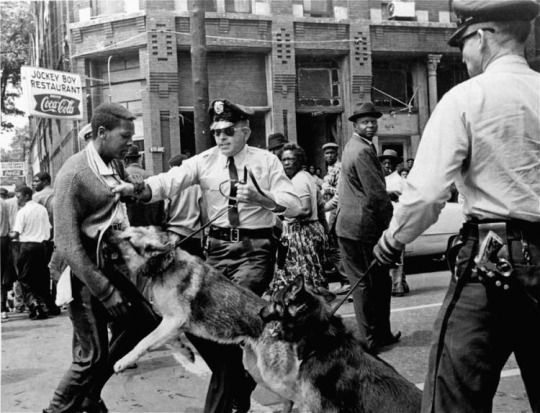
Protest observer (Walter Gadsden, 17) in Birmingham, Alabama, USA, on 3 May 1963, being attacked by police dogs during a civil rights protest.
On July 11, 2017, a video circulated throughout social media depicting the San Diego police deploying a canine against an unarmed suspect. Posted by a bystander named Angel Nunez, it revealed a large police dog lacerating a Black man’s arm while he was handcuffed and subdued on the pavement. The officers appeared to lose control of the animal, while the man screamed in agony as the dog ripped his flesh. Since the video did not reveal the events leading up to the attack, some viewers suspected the man surely antagonized the animal. Shortly after the original post, however, Nunez provided a second video depicting the preceding events. It revealed no premise for the dog’s attack. The suspect appeared to simply hold his arms in a defensive posture as the dog lunged and tackled him to the pavement.
The image triggered various reactions throughout social media. Though skeptics attempted to explain the procedure, and deny its racial overtones, many believed it manifested yet another example of police brutality. Though police shootings and violent beatings typically dominate mainstream perceptions of police violence, the use of canines to subdue people of color has a deeply racist history that not only engulfs the United States, but much of the western hemisphere.
Scholars note that European colonists brought dogs to the Americas and used them as tools for intimidation and violence against indigenous populations, but the deliberately racialized breeding of canines occurred during the expansion of Black chattel slavery. As slave rebellions erupted throughout the western hemisphere in the eighteenth and nineteenth centuries, a breed called the “Cuban bloodhound” was diffused throughout the slaveholding colonies. Named for the island from which they hailed, they were physically imposing and extremely aggressive. Used in Cuba to confine slaves to the plantations, they were eventually exported to quell Black revolts. The British used them against the Jamaican Maroons in the late eighteenth century and the French engaged their services during the Haitian Revolution in the early nineteenth century.
A few decades later, the US government was engrossed in a lengthy conflict with the Black Seminole Indians in Florida, and military officials followed the French and British examples by importing Cuban bloodhounds to help crush the revolt. Following this event, entrepreneurial white southerners interbred the dogs with local breeds, birthing the occupation of professional slave hunting in the antebellum South.1Cuban Mastiff
The targeting of enslaved men and women was so pervasive that Black authors called them “Negro Dogs,” as the fugitive comprised the most lucrative target for the dogs’ owners. These animals held a prominent legacy in the testimonies of former slaves, as their oral histories recollected stories of pursuit, evasion, and, oftentimes violent, capture. The assault on Black people was so widespread that a reader gains a sense of its normalcy in the literature. According to one former slave from Mississippi, “Some folks treated the slaves mighty bad, put nigger dogs on ‘em” Far from a haphazard practice, the business of hunting Black bodies was ritualized throughout the South.
Emancipation brought little relief. The legal subversion of Black Americans continued after the Civil War and the backbreaking requirements of southern agricultural labor during the Jim Crow period largely mirrored its antebellum predecessor. One 1903 headline entitled, “Slavery in Alabama,” accused southern sharecroppers of developing a system of neo-slavery by preying upon impoverished African Americans who remained in perpetual debt: “Planters in want of labor…paid the fines and took the negroes into slavery, ostensibly to ‘work out’ their fines.”2 Such economic exploitation perpetuated debt bondage that mirrored antebellum slavery, and the report detailed how the workers were treated with “great severity” and received whippings for disobedience. Upon any attempt to abscond from the plantation “they were hunted down in the old slavery day’s fashion with bloodhounds.”3

Being “hunted down” with bloodhounds became a familiar experience for Black fugitives, but canine violence was also used to dismantle peaceful protests in the 1960s. Though the “Dogs of Birmingham” often dominate images of violence during the Civil Rights era, the practice spanned much of the Deep South. In 1963, the New York Times reported that police in Greenwood, Mississippi, a city notorious for its violence against Civil Rights workers, used canines to perpetuate anti-Black oppression. James Farmer, national director of the Congress of Racial Equality, condemned the attack of a Black minister by police dogs, declaring, “When that dog’s fangs sank to the ankle of the young minister…they also sank into the hearts of the Negroes of Greenwood.”4 By the time of the passage of the Voting Rights Act in 1965, canine units had threatened and intimidated Black protestors throughout the South.“The author caught by the bloodhounds.” Illustration from Narrative William W. Brown: An American Slave
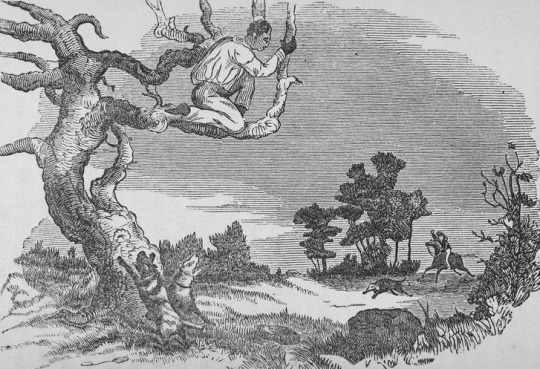
Despite the public’s outcry against southern police tactics, the violent images of dogs attacking Black victims did little to curb the persistence of this practice throughout the United States. Though police departments assumed that “many lessons were learned since Birmingham,” largely through better training approaches for handlers and their canines, modern statistics remain quite troubling when viewed through a racial context.
The Los Angeles Police Department (LAPD) is one of the worst repeat offenders. Throughout the 1980s, African Americans leveled complaints that officers jokingly called Black suspects “dog biscuits” as they deployed canines against them. The issue came to a head during the 1991 class action suit Lawson v. Gates, which spotlighted the LAPD’s unlawful use of canines as vehicles of terror and intimidation against minority communities.
Evidence was especially damning, and the plaintiff’s attorneys were able to prove the LAPD deployed dogs principally in African-American and Latino communities, even though “crimes for which dogs are used occur at equal if not greater rates in communities with substantially higher Caucasian populations.”
The case was settled with a monetary payment to 54 plaintiffs, and that the LAPD would institute reform measures for how officers deployed canines. Law enforcement agencies in Los Angeles would later celebrate these reforms throughout the 1990s, claiming bite ratios were markedly down from previous years. However, recent data from the Los Angeles Sheriff’s Department (LASD) provides a vastly different picture.
A recent study from the LASD revealed that canine bites in the Los Angeles area were leveled solely against people of color for the first six months of 2013, and the bite ratios against Blacks and Latinos remain disproportionately high. But these contemporary problems do not lie solely in southern California. Following the killing of Michael Brown in 2014, the Department of Justice (DOJ) uncovered that police units in Ferguson, Missouri, persistently used dogs to attack Black suspects, including teenagers. Ultimately, the DOJ report concluded that Ferguson police “appear to use canines not to counter a physical threat but to inflict punishment.”
Including animals in the histories of racial violence, in both colonial histories and the African American experience, contextualizes how conceptions of race are made, consolidated, and reimagined by human populations. We must realize that enactments of police brutality are not solely human-to-human phenomena, but such state-sanctioned patterns of violence are deeply rooted in American history.
#Police Dogs and Anti-Black Violence#police dogs#violence from police#police violence#police weaponizing dogs#police k9 units weaponized against Black People#Black Lives Matter
6 notes
·
View notes
Text
great read by Rita Ann Wallace:
Prince Harry and Meghan’s treatment changed me from a royalist into a republican
I’m embarrassed to say I was an anglophile and royalist all my life. Then I saw what they did to Prince Harry & Meghan.
I’m now a staunch republican. I hope they abolish the monarchy both in my own country, Jamaica, and in Britain, and that Prince Charles becomes Charles the Last.
How did a Jamaican become a monarchist and anglophile? There are many reasons. My grandfather went to England before I was born, and after him my uncles, mother, & aunt. He went in the mid 1950’s and his last child in 1965.
England was where the parcels came from at Christmas with our clothes, and the airmail letters with the earliest remittances — postal money orders to provide for us. It was a place we children wanted to go to live one day, joining our parents and the hundreds of others like us who settled in the ‘mother country’.
I attended an English style boarding grammar school in western Jamaica. Our headmaster was English, and so were almost all the teaching staff. Our syllabus was geared to Cambridge GCE ‘O’ and ‘A’ levels. We did English literature: Shakespeare, Dickens, George Eliot, Thomas Hardy.
So I was very familiar with the landscape, symbols, place names and personalities of England. With my mother there, with glimpses of “Mrs Queen”, as we called her, when she visited Jamaica over the years; with dazzling Diana; with televised royal weddings, funerals & parades, England and the monarchy seemed benign and wholesome — despite the knowledge of slavery and colonialism. Somehow, we didn’t blame Mrs. Queen and her family. They remained a colorful backdrop to the stories I had grown up on.
Fast forward through years of desultory royal watching to 2018 when, like millions of other people, I watched the wedding of Prince Harry and Meghan Markle.
I was visiting England at the time and stayed glued to BBC to watch the Prince and his beautiful Black American bride. I wished them nothing but the best, and rejoiced in the spectacle. Two weekends later I went to Windsor and I bought Royal Wedding postcards and a tea towel. I returned home and prepared to go back to the usual — checking once in a while to see how they were doing and tuning in again only for a royal birth.

Framed postcard from the Royal Wedding 2018
By the end of 2018, only a Rip Van Winkle would have failed to notice just how badly and unfairly Meghan was being treated by the British press — including the mainstream, not just the notorious tabloids. Others have documented the racism, xenophobia, disdain, and outright slander heaped upon this poor woman’s head.
It started before Prince Harry and Meghan were even engaged. In an unprecedented move, Harry even called out the racist attacks on his then girlfriend — but to no avail. From The Times, to The Telegraph, to the Mail, the Express, the Sun, to daily broadcast television, to Piers Morgan and his ilk, to online trolls and hate entrepreneurs, the attacks were relentless. They only multiplied after the couple had their first child. The trolls coined the word Megxit, signifying their intent to push Meghan out of Britain.
In time, as the world knows, they succeeded. Harry and Meghan stepped back from their roles as senior members of the Royal Family and moved to America. This incensed the haters even more, as obviously they had hoped their campaign would have sent Meghan and Archie away, but left Harry. The whole family leaving only increased the racist hate and vitriol exponentially.
Why am I blaming the British Royal Family for all this? Because they either said nothing or actively worked against them.
Prince Charles, Harry’s father, whom I used to admire for his environmentalism, said and did nothing when his son battled the media and his daughter-in-law was almost driven to suicide.
The Queen, Harry’s grandmother, who is head of the Firm, said and did nothing. Oh, not nothing. How could I forget? When the March 2021 interview with Oprah was about to air, Buckingham Palace announced it was opening an investigation into claims that Meghan had “bullied” Kensington Palace staff. The so-called investigation closed in 2022, with no result announced.
Prince William, Harry’s elder brother didn’t say and do nothing, though. He let it be known, according to The Times, that he’d ‘put his arm around his brother all his life’ and wouldn’t anymore. When Meghan sued the Mail on Sunday for copyright breach and won, William sent his trusted henchman, Jason Knauf (famous for claiming that Meghan had bullied staff) to support the Mail on appeal.

Front page of The Times, January 12, 2020.
Who are these people, I finally asked myself? Why should they be on a pedestal? Why would anyone regard them in any positive light when they have shown themselves to be utterly uncaring and despicable?
The treatment of Meghan, the lens of the UK Black Lives Matter protests, the Windrush scandal, all combined to show exactly what the colonies endured for hundreds of years: the overweening arrogance of the English massas, so sure of their white superiority, while treating Black and Brown people with brutality and savagery.
And so, with no apologies to Mrs. Queen, with no regrets at all except for the time lost in nostalgia, I am calling on Prime Minister Andrew Holness to set swiftly in motion the process to get rid of the British monarch as Head of State of my country. And while we’re at it, get rid of the monarch as head of the Commonwealth too.
It’s full time to have no more royal tours of Jamaica, no more “King’s House”, no more “Mrs. Queen”. We don’t need these upholders of racism to be part of our governance; they don’t own us anymore.
The time has come.
#rita ann wallace#prince harry#meghan markle#duke of sussex#duchess of sussex#brf#royals#british royal family
48 notes
·
View notes
Text
Punch Out x Poppy Playtime: Helper AU #2
A sequel to the original but this time with the Super Punch Out and some of the original Punch Out characters. Please Enjoy!
Note: Shout out to @nesssblog who is the one that came up the ideas of the 2nd batch of charatcers)
Story:
After some of the Playtime Co. employees went missing and the release the first wave of the Happy Helpers, a series of dress up action figures, the employees of the Playtime Co. 2nd division of the factory went missing and the second wave of the Happy Helpers have been released who resembles to the 2nd division employees. When the player and the 1st wave of Helpers were overpowered by the monsters, they were saved by the 2nd wave of Helpers, who they realized it was the missing 2nd division employees.
“Introducing the 2nd wave of the Happy Helpers! The more Helpers you have, the more friends you collected.”
- Spokesperson
Cast
- Birdie as Billy Byrd “Birdie the Boxer”
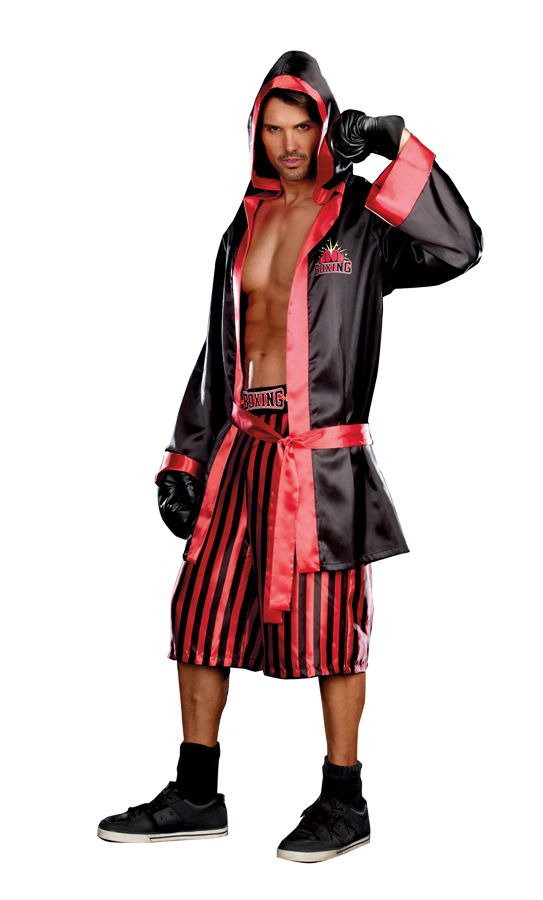
Billy Byrd is a 19 year old American 2nd division factory employee who is the BFF of Mac and Mika and is also juggling both school and work to support his life until he went missing alongside his fellow 2nd division employees. Billy became Birdie the Boxer, a 2nd boxing Helper who is Mac’s BFF/rival. Birdie’s special feature has a boxing feature like Mac but he delivers rapid punches to the monsters, and has a strong punched which knocks the monsters away to protect the player.
Birdie’s 2nd Outfit (Champion)
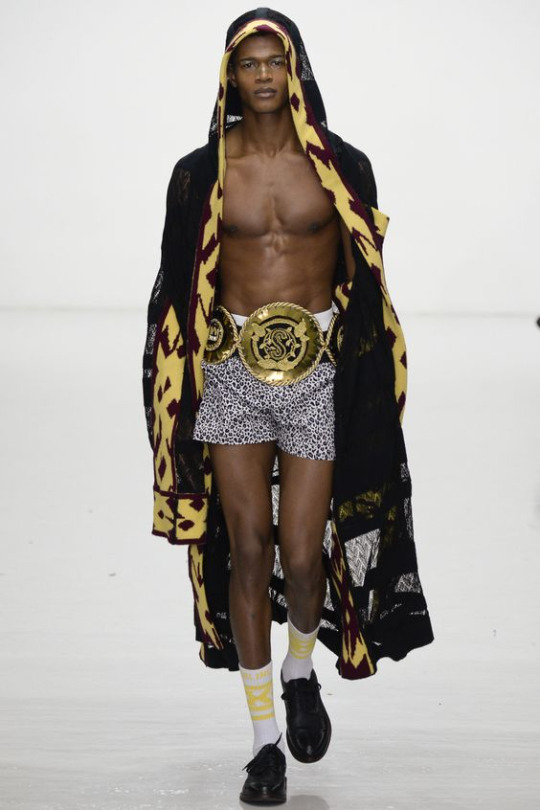
- Adarna (@nesssblog’s Punch Out OC) as Leonora Agila Del Rosario “Adarna the Birdkeeper“

Leonora Agila Del Rosario is a 26 year old Filipino 2nd division factory worker who was raised by her grandmother, who told her stories about mythical creatures and epics of her home country, leading to her interest in literature until she went missing alongside her fellow 2nd division employees. She became Adarna the Birdkeepr who loves and takes care of different kinds of birds. Adarna’s special feature is that she has tiny mechanical birds to help her. The birds attack the monsters as a distraction to help the player escape.
Adarna’s 2nd Outfit (Falconer)
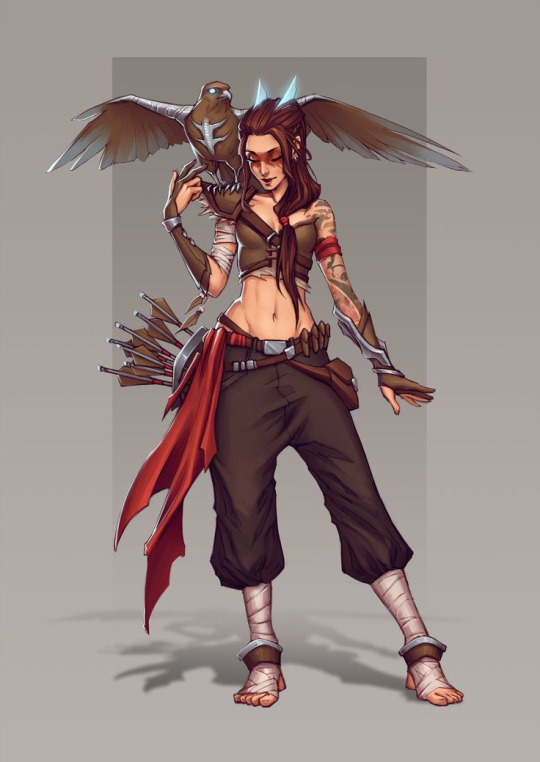
- Gabby Jay as Gabriel François Lavigne “Gabby the Waiter”

Gabriel François Lavigne is a 56 year old 2nd division factory worker who has a bad habit of smoking and works as a waiter at a local restaurant until he went missing alongside his fellow 2nd division employees. He became Gabby the Waiter, a French waiter Helper who serves people delicious food and refreshing drinks. Gabby’s special feature is a throwing feature where he throws plates and various cutlery to distract the monsters.
Gabby’s 2nd Outfit (Bartender)
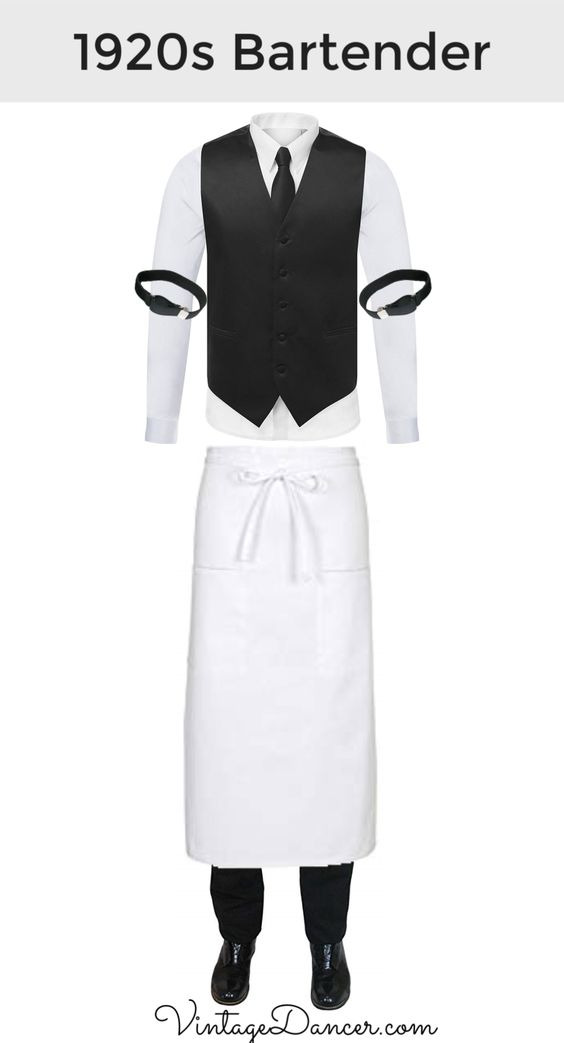
- Bob Charlie as Baron Ajani Whyte “DJ BC (Bob Charlie)”

Baron Ajani Whyte is a 26 year old Jamaican 2nd division factory worker who has a love for music and dancing like Dean/Disco the Dancer until he went missing alongside his fellow 2nd division employees. Baron became DJ BC (Bob Charlie), a Jamaican DJ Helper who loves to party. BC’s special feature is that he carries around a boombox which sends out soundwaves to knock the monsters out.
BC’s 2nd Outfit (Party Time!)
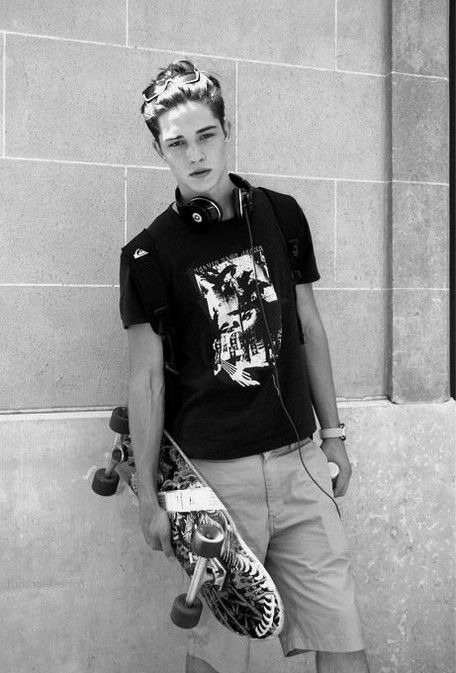


- Dragon Chan as Haitao Chen “Dragon the Warrior”

Haitao Chen is a 22 year old British Chinese 2nd division factory worker who excels in kickboxing and martial arts until he went missing alongside his fellow 2nd division employees. Haitao became Dragon the Warrior, a Chinese kung fu martial artist Helper who honors the name of his master and life. Dragon’s special feature is that he has powerful kicks able to send the monsters far enough from the player to escape.
Dragon’s 2nd Outfit (The Chosen One)

- Piston Hurricane as Alejandro Bembe González “Hurricane the Weather Hero”

Alejandro Bembe González is a 25 year old Cuban 2nd division factory worker who is a bit of a bookworm until he went missing alongside his fellow 2nd division employees. He became Hurricane the Weather Hero, a Cuban weather elemental who, just like Mika, fights for justice and liberty. Hurricane’s special feature is the he is able to electrocute the monsters to stun them and use other weather-related attacks.
Hurricane’s 2nd Outfit (Tron Suit)

- Masked Muscle as Santiago Ángel Hernández “The Masked Muscle Luchador”

Santiago Ángel Hernández is a 29 year old Mexican 2nd division factory worker who is a retired luchador and a prankster until he went missing alongside his fellow 2nd division employees. He became The Masked Muscle Luchador, a Mexican luchador Helper who is very strong and egotistical. MM’s special feature is that he spits at the eyes of the monsters to give them a temporary loss of vision.
MM’s 2nd Outfit (Day of the Dead)
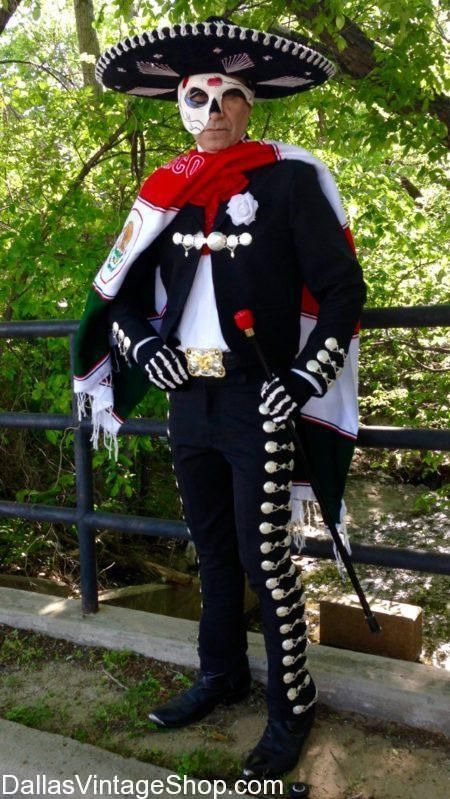
- Heike Kagero as “Kagero the Kabuki Dancer”

Heike Kagero is a 19 year old Japanese 2nd division factory worker, who, just like Mac, Billy and Mika, juggling both school and work to support his life and is a amateur Kabuki dancer until he went missing alongside his fellow 2nd division employees. He became Kagero the Kabuki Dancer, a Japanese kabuki dancer Helper who is both beautiful and graceful, even though he is a man. Kagero’s special feature is that he uses his dances to possibly distract the monsters and throwing sharp fans at them to do damage.
Kagero’s 2nd Outfit (Sakura)

- Mad Clown as Leonardo Esposito “The Mad Clown”

Leonardo Esposito is a 27 year old Italian 2nd division factory worker who wears clown makeup to work, cracks jokes and is a retired opera singer turn circus clown until he went missing alongside his fellow 2nd division employees. Leonardo became The Mad Clown, an Italian clown Helper who is a jokester and loves making people laugh. MC’s special feature is that he has numerous tricks up his sleeve, his juggling balls, when throwing them deal huge damage.
MC’s 2nd Outfit (Monochrome)
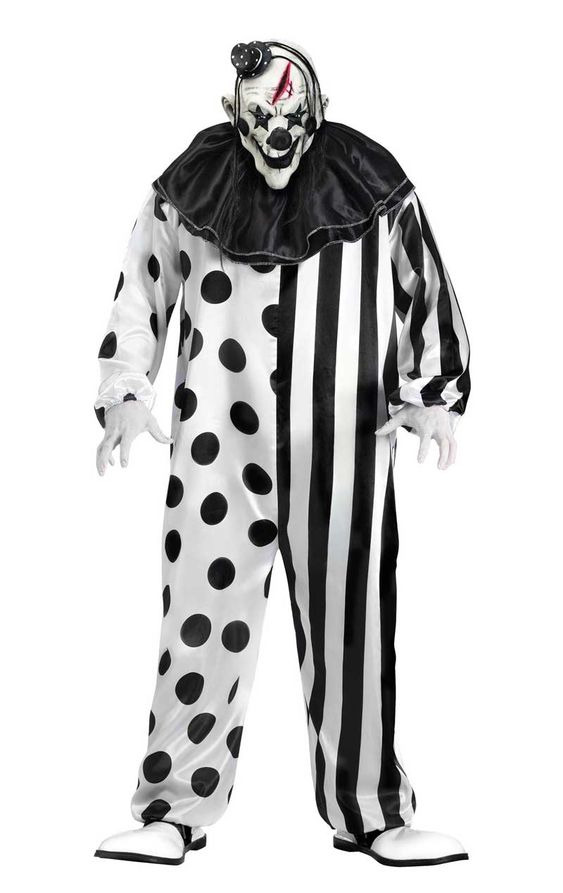
- Narcis Prince as Nathaniel Howard Prince “Prince the Narcistic”
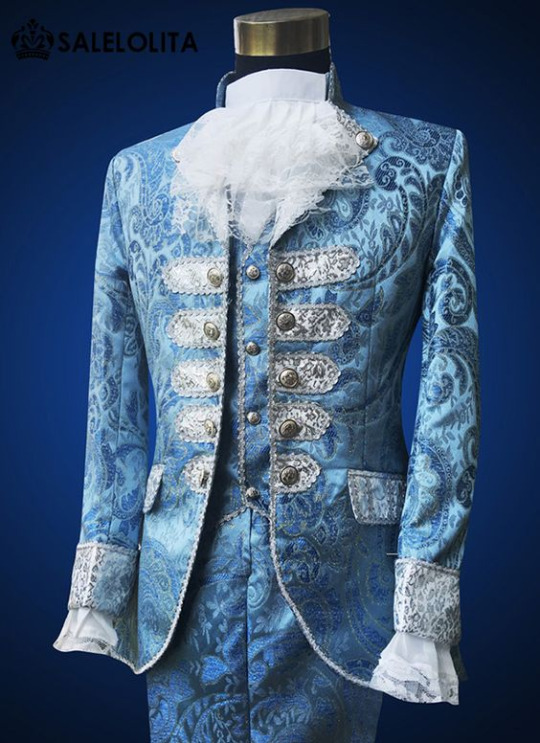
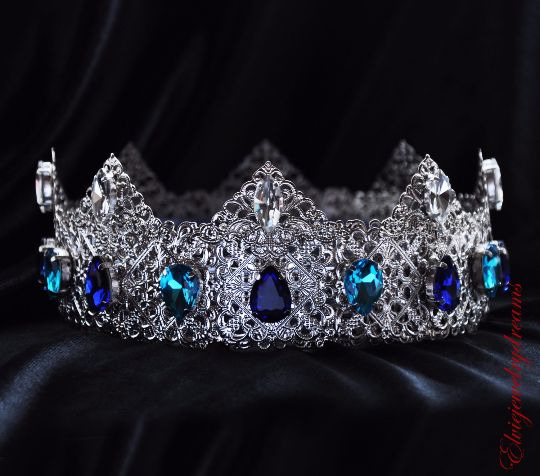
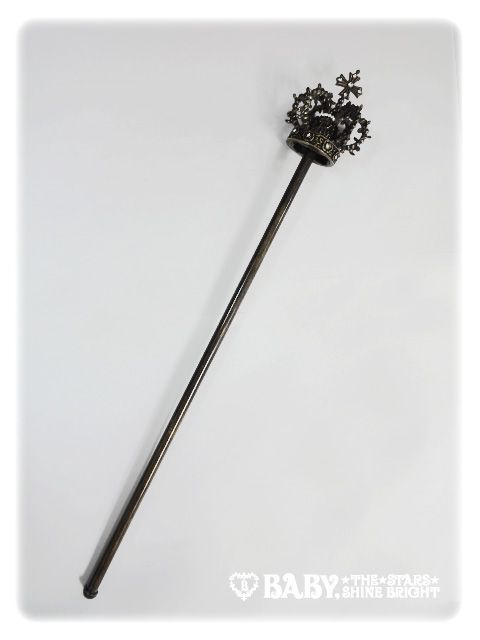
Nathaniel Howard Prince is a 20 year old British 2nd division assistant manager who is always full of himself but sometimes acts like a gentleman, growing up in a wealthy family until he went missing alongside his fellow 2nd division employees. He became Prince the Narcistic, a British prince Helper who is both narcistic and noble. Prince’s special feature is that his scepter is actually a sword and turn his crown into a shield to defend the player from the monsters.
Prince’s 2nd Outfit (Knight)

Hoy Quarlow as Hoy Xu Quarlow “Master Hoy”
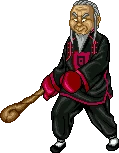
Hoy Xu Quarlow is a 78 year old Chinese 2nd division factory worker who always bring great advice to people until he went missing alongside his fellow 2nd division employees. He became Master Hoy, a Chinese kung fu master Helper who is Dragon’s master. Hoy’s special feature is that he carries a staff around which is hard hitting and is able to incapacitate monsters.
Hoy’s 2nd Outfit (Noble Master)

- Rick and Nick Bruiser as Richard Phillips and Nicholas Phillips “The Bruiser Brothers”
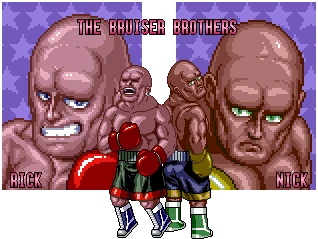
Richard and Nicholas Phillips are 28 year old American 2nd division factory workers who are twins with different personalities: Richard is rowdy, cheerful and lazy and Nicholas is smart, serious and quiet until they both are missing alongside their fellow 2nd division employees. They became The Bruiser Brothers, two American fighter Helpers who work together as a team. The Bruisers’ special feature are that they use their bare fists to fight the monsters to protect the player from danger.
The Bruisers’ 2nd Outfits (The Strong and The Smart)
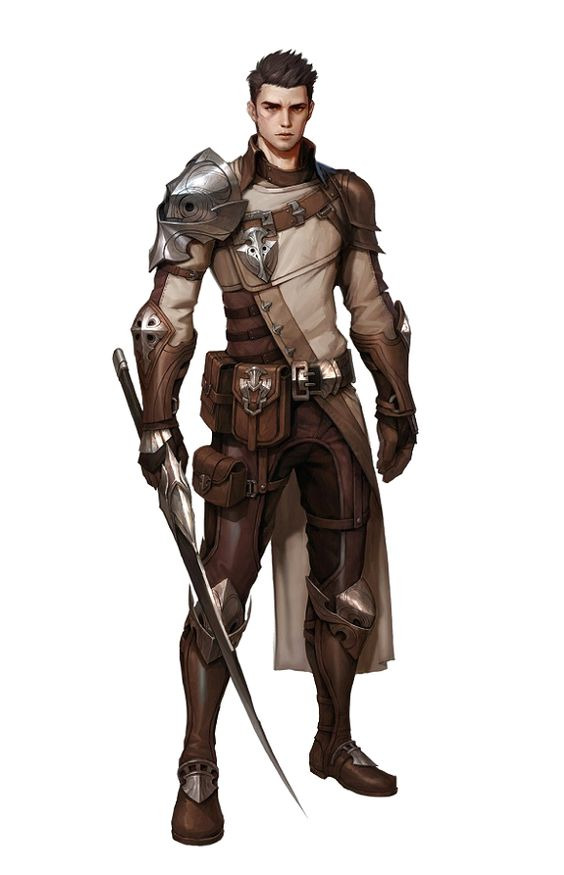
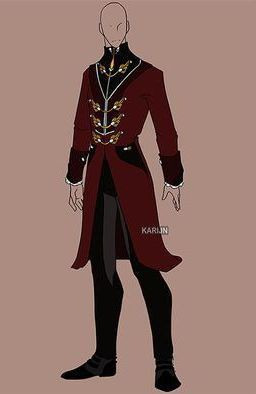
- Pizza Pasta as Giovanni Colombo “Chef Pizza”

Giovanni Colombo is a 38 year old Italian 2nd division factory manager who owns a pizzeria and has a love for cooking until he went missing alongside his fellow 2nd division employees. Giovanni became Chef Pizza, an Italian chef Helper who loves Italian cuisine. Pizza’s special feature is that he has a throwing feature like Gabby but he throws pizza dough and knifes at the monsters.
Pizza’s 2nd Outfit (Halloween)


- Kid Quick as Floyd Gideon “Kid the Runner”

Floyd Gideon is a 20 year old American 2nd division factory worker who is Dean’s cousin and is also fast triathlon athlete until he went missing alongside his fellow 2nd division employees. He became Kid the Runner, an American runner who is really fast and quick. Kid’s special feature is that he has a winding feature, just like Aran, which makes him able to run very fast to distract the monsters.
Kid’s 2nd Outfit (Winter)

- Mr. Dream as Kyle J. Daryl “Mr. Dream the Boxer”

Kyle J. Daryl is a 33 year old American 2nd division factory moderator who is quite the soft-spoken guy and is a bit of a Care Bear collector until he went missing alongside his fellow 2nd division employees. Kyle became Mr. Dream the Boxer, another American boxer Helper who is both Mac and Birdie’s rival. Mr. Dream’s special feature is that he uses his Dreamland Express Punch is incredibly strong, able to knock multiple monsters away.
Mr. Dream’s 2nd Outfit (Champion)

(This is such a long post)
5 notes
·
View notes
Text
TRUE NARRATIVE
A true narrative essay is a true story, with plot, action, suspense characters and setting which delivers a theme (a lesson observed). The events in your essay represent the facts.
TESTIMONIES
Narrative trend: the so-called “testimonial narrative.” In these books, a writer interviews a person from a marginal social group and transcribes the result in the first person.
EXAMPLES:
•short stories, novels, biographies, memoirs, travelogues, non-fiction, plays, history, sculptures.
-Films and TV shows
-Novels and plays
-Graphic novels and comic books
-Video games
-Journalism and essays
-History accounts
-Biographies and memoirs
-Myths and legends
-Religious texts
-Podcasts
-Stories around the campfire
MINI CRITIQUE
INTRODUCTION
TITLE:
•If I Survive You
AUTHOR:
•Jonathan Escoffery is an American writer. His debut novel, If I Survive You, was longlisted for the 2022 National Book Award for Fiction and shortlisted for the 2023 Booker Prize, among other honors. The novel was well received by critics with reviews applauding Escoffery's humor, narrative style and exploration of identity in the immigrant experience.His debut, If I Survive You, announces Jonathan Escoffery as a skilled chronicler of American life at its most gruesome and hopeful.Jonathan Escoffery is the recipient of the Paris Review’s 2020 Plimpton Prize for Fiction, a 2020 National Endowment for the Arts Literature Fellowship, and the 2020 ASME Award for Fiction. His fiction has appeared in the Paris Review, American Short Fiction and Electric Literature, and has been anthologised in The Best American Magazine Writing.
He received his MFA from the University of Minnesota, is a PhD fellow in the University of Southern California’s PhD in Creative Writing and Literature Program, and in 2021 was awarded a Wallace Stegner Fellowship in the Creative Writing Program at Stanford University. His debut, If I Survive You, is shortlisted for the Booker Prize 2023.
THESIS STATEMENT
•In the 1970s, Topper and Sanya flee to Miami as political violence consumes their native Kingston. But America, as the couple and their two children learn, is far from the promised land. Excluded from society as Black immigrants, the family pushes on through Hurricane Andrew and later the 2008 recession, living in a house so cursed that the pet fish launches itself out of its own tank rather than stay. But even as things fall apart, the family remains motivated, often to its own detriment, by what their younger son, Trelawny, calls "the exquisite, racking compulsion to survive."
SUMMARY
•A major debut, blazing with style and heart, that follows a Jamaican family striving for more in Miami, and introduces a generational storyteller.
In the 1970s, Topper and Sanya flee to Miami as political violence consumes their native Kingston. But America, as the couple and their two children learn, is far from the promised land. Excluded from society as Black immigrants, the family pushes on through Hurricane Andrew and later the 2008 recession, living in a house so cursed that the pet fish launches itself out of its own tank rather than stay. But even as things fall apart, the family remains motivated, often to its own detriment, by what their younger son, Trelawny, calls "the exquisite, racking compulsion to survive."
Masterfully constructed with heart and humor, the linked stories in Jonathan Escoffery's If I Survive You center on Trelawny as he struggles to carve out a place for himself amid financial disaster, racism, and flat-out bad luck. After a fight with Topper―himself reckoning with his failures as a parent and his longing for Jamaica―Trelawny claws his way out of homelessness through a series of odd, often hilarious jobs. Meanwhile, his brother, Delano, attempts a disastrous cash grab to get his kids back, and his cousin, Cukie, looks for a father who doesn't want to be found. As each character searches for a foothold, they never forget the profound danger of climbing without a safety net.
Pulsing with vibrant lyricism and inimitable style, sly commentary and contagious laughter, Escoffery's debut unravels what it means to be in between homes and cultures in a world at the mercy of capitalism and whiteness. With If I Survive You, Escoffery announces himself as a prodigious storyteller in a class of his own, a chronicler of American life at its most gruesome and hopeful.
EVALUATION
•Jonathan Escoffery's 'If I Survive You' offers a poignant exploration of love, loss, and resilience through the lens of a complex relationship. The story's evaluation could highlight Escoffery's masterful character development, particularly in portraying the intricate dynamics between the protagonists. Escoffery's prose skillfully navigates themes of trauma and healing, inviting readers to reflect on the impact of past experiences on present relationships. The narrative's structure effectively builds tension and emotional depth, drawing readers into the characters' journeys. Overall, 'If I Survive You' stands as a powerful testament to the enduring nature of love and the human capacity for survival.
CONCLUSION
•I agree with the writer of this story because the story shows what the hero's experience is and how he solved each problem, then the readers can learn many lessons from it. This also provides a way for others to understand the every situation or how or what should be done. We all have different experiences in life so the writer measured it in order to share and show what is happening or the experience of the protagonist in the story.
0 notes
Text
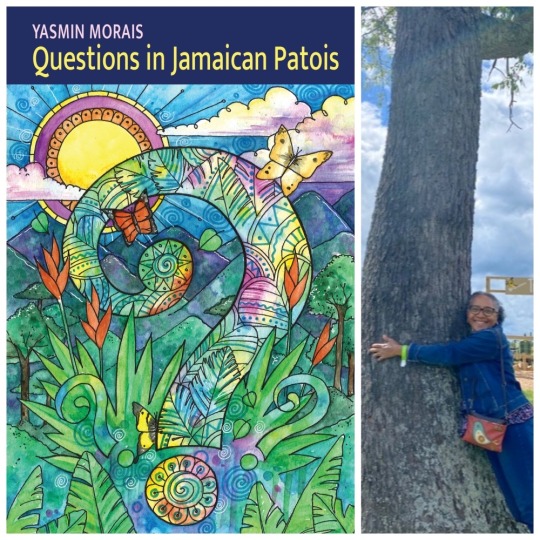
NEW FROM FINISHING LINE PRESS: Questions in Jamaican Patois by Yasmin Morais
On SALE now! Pre-order Price Guarantee: https://www.finishinglinepress.com/product/questions-in-jamaican-patois-by-yasmin-morais/
Questions in Jamaican Patois presents the perspective of a #Jamaican Canadian American woman as she ponders her past, present and the pasts of the strong #women who preceded her. Her poems provide a window into the everyday human experience as she grapples with the meaning of love, loss, heartbreak, nostalgia, adjustment, and survival. It is through her questions that the answers are ultimately found. #poetry
Yasmin Morais was born in Jamaica and later lived in Canada and now the United States. Her poems have been published in Nursing Science Quarterly, The Potomac, and Pen and Prosper. Yasmin also self-published her first poetry collection, From Cane Field to the Sea. Her short story, Rashida’s Letter, placed third in the Tallahassee Writer’s Association competition and was published in the Seven Hills Review. See link: https://www.amazon.com/Seven-Review-Tallahassee-Writers-Association/dp/1481148818 To showcase the works of Caribbean poets, she created the blog, Poets of the Caribbean: poetsofthecaribbean.blogspot.com She enjoys traveling, badminton and running in her spare time.
PRAISE FOR Questions in Jamaican Patois by Yasmin Morais Questions in Jamaican Patois by Yasmin Morais
Yasmin’s poetry is powerful, purposeful, poised! In her new collection, “Questions in Jamaican Patois”, she connects with audiences through clever word choices, timely topics, and great emotional range. Readers will become fast fans! From page one, until it’s done, this eclectic collection captivates the mind and captures the heart. Yasmin Morais is an immense talent, and “Questions in Jamaican Patois” is a must-read.
–Jennifer Brown Banks, FOUNDER/PRESIDENT OF POETS UNITED TO ADVANCE THE ARTS
In Questions in Jamaican Patois, poet Yasmin Morais calls us to walk with her along many roads. They’re pavers made of her words. On this journey, we walk along with Morais while seeing and feeling what she sees and feels. Each poem acts as a door to a residence. She walks us to the knob to turn it and look inside the building. Her construction of moments and memories creates a foundation of rich and strong imagery. She takes us there. Her poems introduce us to meaningful topics such as racial issues, health, morality, identity and history. Whether it’s a welcomed piece said in patois, we don’t want to leave. Her reflections of breast cancer feeds us well to sit by her and just listen to her journey. We’re there. We feel drawn and motivated to comfort the warrior. Though she provides the real healing power from her words. Poem after poem there’s a desire to read and see more. Her voice of poignant patois resonates directness and wisdom. Her spirit seems ancient with clarity. She brings a sharp focus and understanding of life experiences which translates well. Morais doesn’t let go as we continue the journey to her last poem. In the end, we’re full like eating a delicious meal. At our table, those questions of life are a part of us. We have some answers and more questions but that’s okay. That’s the meaning of life. She let’s us know with this unforgettable depth as long as we walk together we’ll reach an understanding between each other.
–Henry L. Jones, Inaugural Poet Laureate, of Hendersonville, Tennessee
Please share/repost #flpauthor #preorder #AwesomeCoverArt #read #poems #literature #poetry
#poetry#flp authors#preorder#flp#poets on tumblr#chapbook#chapbooks#finishing line press#small press
0 notes
Text
Zora Neal Hurston
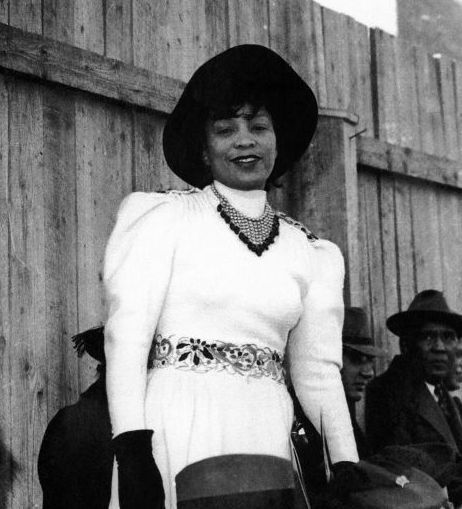
One of my favorite writers I read in The Bedford Anthology of American Literature. Novelist, Folk Lorist, and Anthropologist. Zora Neal Hurston explored the cultures found deep within the south and other countries such as Haiti and Jamaica.
A strong sense of black culture, Hurston's writing centers around the experiences of black and the folklore and myths she discovered. To Hurston everything European is boring. Anything white is boring. African, Haitian, Jamaican folk lore is exapansive and more interesting. Stated in her essay, Characteristics of Negro Expression, Hurston claims:
"Negro Folklore is not a thing of the past. It is still in the making. Its great variety shows the adaptability of the black man: nothing is too old or too new, domestic or foreign, high or low, for his use."
The story that got me hooked of Hurston's work in Spunk. Absolutely amazing, exploring everyday relationships with a splash of folk lore.
0 notes
Text
youtube
Interview with a Storyteller: Dr. Emily Zobel Marshall
A spider, a rabbit and a raven walk into a bar...and all hell breaks loose. Well, what else do you expect when dealing with tricksters? The latest interview with a storyteller is a little more like an interview about storytellers. Specifically, the tricksters (and their stories) who have the power to shape our world.
Dr. Emily Zobel Marshall is a professor at Leeds Beckett University and has been a full-time Lecturer at the School of Cultural Studies there since 2007. Emily is an expert in the role of trickster figures in the literatures and cultures of Africa and its Diaspora and has published widely in this area, most recently "American Trickster: Trauma Tradition and Brer Rabbit"; and one that first brought me to her work -- "Anansi's Journey A Story of Jamaican Cultural Resistance." I highly recommend both.
In this interview, we also mention places where Anansi and Brer Rabbit show up in modern pop culture, including "American Gods" and the latest season of "Random Acts of Flyness", which I also highly recommend. If you know of other modern stories that feature these trickster figures, please reach out as Emily is currently researching this area! Transcript auto-generated via Descript. Episode edited and sound designed by Sarah Buchynski. Stay tuned for more interviews and modern folk tales by signing up to our newsletter, or wherever you find your digital hearth!
1 note
·
View note
Text
Article 1: Access to contraception by minors in Jamaica: a public health concern
This article is focused in Jamaica, which is a known place for adolescent pregnancy which presents a serious social and public health problem. It was shown that forty percent of Jamaican women have been pregnant at least once before they reach the age of 20, and more than 80% of adolescent pregnancies are unplanned.
Access to contraceptives by minors has in recent time raised much policy concern by policy decision-makers, political supporters, government ministries, schools, parents and children in Jamaica. The conflicting position between the Reproductive Health [RH] Policy Guideline 2004, the Child Care and Protection Act 2004, have often times resulted in its contents not being adhered to, especially by health care providers, who expressed that the said legislation does not protect them (unlike the case of the United Kingdom), regardless of the contents of the RH policy guideline.
The methods used was from 238 sexually active cases, ages of minors between 9-17. All the participants were informed about the purpose of the study and the level of confidentiality that would have been exercised. They were further instructed to not reveal their names or any other form of identification relating to them, the health care providers, guidance counselors, their intimate partners.
The results showed that Sexual activity is less prevalent among males (56) than females (88) aged 15-17 with sexual partners mainly over 17 years old. There are more male users (80) of contraceptives than females (40) and also more consistent male users (47) than females (10), the latter also uses dual methods (83). On the other hand, there are respondents who do not use any form of contraceptive during sexual activities (39 males and 79 females) - representing 32.7% and 66.4% respectively. The most prevalent methods are the condom (63.9% male, 24.4% female) and coitus interruptus (4 males, 47 females) followed by the emergency contraceptive pills (13.4% female) and other methods such as spermicidal, dental dam, intrauterine device and diaphragm (16% female). Very few of the respondents use hormonal pills (8% female) and surgical methods (4% female). Of the nine 9-11 year olds, two take oral contraceptive pills, two take Emergency Contraceptive Pill (ECP), two practice coitus interruptus, two use condoms (females only), and one uses another form of method.The most likely form of sexual practice is vaginal, endorsed mostly by males (55.4%). There are more females (36%) than males (2.5%) who practice anal sex, while those who are more likely to engage in oral sex represent 42% male and 30.3% female
Consonant with the finding of this study that access to contraceptive methods is more favorable to males than females, the literature points out that gender inequity profoundly affects the right to have access to health information, education and care when it limits contraceptive use and choice. Traditionally gender roles often deny women control over their own sexual decisions, and create pressures that compel some men to undertake risky sexual behaviors.
Source: Crawford, T. V., McGrowder, D. A., & Crawford, A. (2009). Access to contraception by minors in Jamaica: a public health concern. North American journal of medical sciences, 1(5), 247–255.
0 notes
Text
QUOTATIONS - MARK BOSTRIDGE’S ‘FLORENCE NIGHTINGALE - THE WOMAN AND HER LEGEND‘ (FIRST PUBLISHED 2008)
First sentence:
‘As the cortege passed Buckingham Palace, the sentries presented arms and the guards stood to attention.’ (Bostridge, 2009, p.xix).
On her legend:
‘ ... baby girls in their droves, were christened Florence.’ (Bostridge, 2009, p.xix).
‘Florence Nightingale was projected by the middle classes as a symbol of efficient, effective, hosewifely virtue to be set against the aristocratic - and masculine - mismanagement of the war.’ (Bostridge, 2009, p.267).
‘But the only woman to challenge Florence Nightingale’s position as the archetypal Crimean nurse, in the popular imagination in recent years, has been the figure of the Jamaican-born Creole Mary Seacole.’ (Bostridge, 2009, p.271).
‘If the American Civil War was a woman’s war, as contemporary commentators claimed it was, because of the significant involvement for the first time in a major conflict in aid schemes at home, and in nursing at the front, then Florence Nightingale was the female exemplar that most American women looked to for their inspiration. Indeed her wartime popularity amounted at times to a cult.’ (Bostridge, 2009, p.363).
‘She disliked the sentimental glamour - “all that misinstering angel nonsense” as she once called it ... ‘ (Bostridge, 2009, p.502).
On writing:
‘For writing was Florence Nightingale’s life blood. This was a woman, after all, who even while in the depths of delirium in the Crimea, in May 1855, insisted on being brought pen and paper, and only with these in her possession did she become calm.’ (Bostridge, 2009, p.6).
‘One of the most striking features of her early letters is their sheer delight in language.’ (Bostridge, 2009, p.33).
On religion:
‘Nominally, she would remain an Anglican, though she ceased to attend church regularly as early as the beginning of her thirties, and was fiercely critical of the bland compromises and political infighting of the Church of England, as well as disagreeing with many of its doctrines, especially those associated with hellfire and damnation.’ (Bostridge, 2009, p.53).
‘ ... the idea that the Bible should be studied critically “like any other book”, remained a central component of her thought.’ (Bostridge, 2009, p.84).
‘She saw prayer essentially as a misdirection of human energy that would be more fruitfully employed in going out into the world seeking to effect change.’ (Bostridge, 2009, p.165).
‘The Church of England was certainly in a condition of turmoil.’ (Bostridge, 2009, p.165).
‘ ... she utterly rejected the doctrine of eternal damnation as hardly consistent with a perfect God; nor did she have any time for the atonement, finding the idea that God would have sacrificed His son on the cross totally abhorent.’ (Bostridge, 2009, p.170).
‘There will be no heaven, Florence insists, unless we make it for ourselves.’ (Bostridge, 2009, p.469).
‘ “Do you think a growing inclination for th Church of Rome a sign of madness?” ‘ (Bostridge, 2009, p.501).
On literature:
‘ ... in the decade’s most infamous fictional heroine, Charlotte Bronte’s Jane Eyre, they discovered a young woman who shared their own dangerous predilection for romantic illusions, and saw themselves reflected in Jane’s fiery cry that women “must have action ... and they will make it if they cannot find it’. To Florence, who read the novel soon after its publication in 1847, Jane Eyre seemed like a real person ... ‘ (Bostridge, 2009, p.103).
‘Florence’s estimate of Jane Austen’s novels was common to many Victorians: “not striking, like Walter Scott’s, but of which one feels the truth to be like that of a Dutch picture ... ”.’ (Bostridge, 2009, p.414).
‘While acclaiming “Middlemarch”, on its appearance in 1873, as a “novel of genius”, Florence took Eliot severely to task for finding no better fate for Dorothea ... than a marriage to “an elderly sort of literary imposter, and quick after him, his relation ... “ ‘ (Bostridge, 2009, p.414).
On nurse’s training:
‘Was the training to be theory or practice based? In Florence’s eyes, examinations were little more than a test of memory, and could not test performance on the ward ... ‘ (Bostridge, 2009, p.365).
‘Moreover, she recognized the use of written exams as a ploy to catch out working-class applicants who were insufficiently literate to score highly in them.’ (Bostridge, 2009, p.503).
REFERENCE
Bostridge, M. (2209 [2008] ) 'Florence Nightingale - the woman and her legend'. Amazon.com [E-book]. Available at: https://www.amazon.co.uk/Florence-Nightingale-Woman-Her-Legend-ebook/dp/B00TJC6JCS (Accessed 2 July 2022).
0 notes
Text
Retro 4 Jordan Shoes For Basketball
Never have I seen such a show that stirred up such controversy as "Machete," however it will not make a penny at brother ql-570 comes with office. Everything started the movie named "Grindhouse" premiered in 2007, and opened with a mock trailer called "Machete." Robert Rodriquez, the director, got fantastic of good feedback, then got the go-ahead money and wanted to make a "real" movie out than me.
I could be accused becoming cracksum biased since my father's father's father was a Jamaican Maroon and my mother's mother's mother to become and raised as a Portuguese Sephardic Orthodox Jew.
But as well as care. So a year or two ago Hasbro, the makers of Monopoly, hired Chuck Phillips to assist them run a poll where fans could vote regarding their favorite city to be featured from a future version of basic board mission. This is what Digitaria, a 130 person digital media services firm, is performing. But synthmaster crack free download couldn't do it itself. So they decided to write this special application and host it with Elastic Compute Cloud, or EC2, Amazon's newly minted hosting companies.
If you are doing any research into the literature of negotiation you'll find folks that contend everything is negotiable. They could back-up this assertion while the entire reasons for bargaining, pricing itself, created on bunker.
First you must realize the purpose why a lot of big budgeted blockbusters were released in the 4 month period. In daemon tools lite crack license key in Hollywood that wreaked havoc on television and show films. Productions came with a halt on film projects and television was littered with endless reruns. The strike caused many series to prematurely die, such because popular "Moonlighting" which never saw its audience come back.
For example, when you sign on for EC2 you read through a question and answer process a person decide on things like memory, hd space and processor rate. You also choose your operating system too, like Windows, Linux or Solaris. I don't have to worry whether the server is running probably the most recent version of Screens. atomic email hunter crack activation key don't have to fret if there is a mechanical challenge with the . I don't have to bother with if my data are going to be backed up - regular setup each of our services to this or use other functions from Amazon online marketplace. When all the smoke clears I have access along with server "in the cloud" just like it's relaxing in front of me.
At one time NAACP would definitely boycott movies and television, for we were tired of the stereotypes being seen. They didn't do it then, but soon I really believe they have the ability to. The public may still laugh at and enjoy some stereotypes, but to provide a so substantially more to African Americans than they visit.
0 notes
Quote
I am a black man, born in Jamaica, B.W.I. (British West Indies), and have been living in America for the last years. It was the first time I had ever come face to face with such manifest, implacable hate of my race, and my feelings were indescribable … Looking about me with bigger and clearer eyes I saw that this cruelty in different ways was going on all over the world. Whites were exploiting and oppressing whites even as they exploited and oppressed the yellows and blacks. And the oppressed, groaning under the leash, evinced the same despicable hate and harshness toward their weaker fellows. I ceased to think of people and things in the mass. [O]ne must seek for the noblest and best in the individual life only: each soul must save itself.
Claude McKay (1889-1948), Harlem Renaissance writer
#Claude McKay#quote#literature#Black literature#Harlem Renaissance writer#Jamaican American literature#racism
20 notes
·
View notes